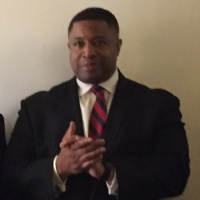Independence Criminal Lawyer, Missouri
Andrea M. Welch
✓ VERIFIEDCriminal, Motor Vehicle, DUI-DWI, US Courts, Felony
Andrea Welch is the President of the Eastern Jackson County Bar Association (board member since 2001, member since 1999). She is also the President of... (more)
Roderick E. Smith
✓ VERIFIEDCriminal, Divorce & Family Law, Traffic
Roderick E. Smith is a practicing lawyer in the state of Missouri handling criminal defense matters.
FREE CONSULTATION
CONTACTFREE CONSULTATION
CONTACTFREE CONSULTATION
CONTACT



